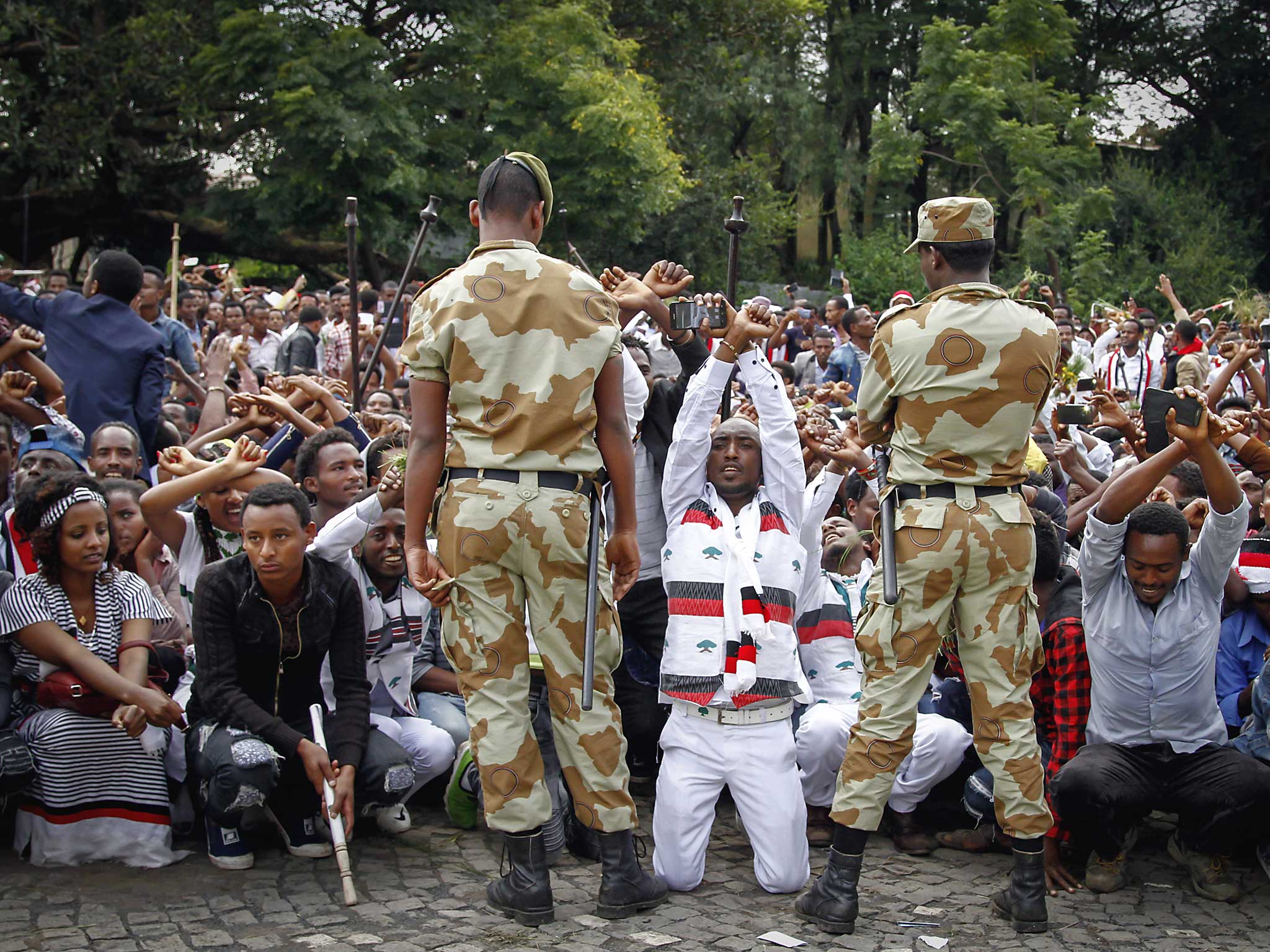Ethiopia bans protests after wave of violence as it declares new state of emergency
Prime Minister resigned on Thursday over deadly mass unrest

Your support helps us to tell the story
From reproductive rights to climate change to Big Tech, The Independent is on the ground when the story is developing. Whether it's investigating the financials of Elon Musk's pro-Trump PAC or producing our latest documentary, 'The A Word', which shines a light on the American women fighting for reproductive rights, we know how important it is to parse out the facts from the messaging.
At such a critical moment in US history, we need reporters on the ground. Your donation allows us to keep sending journalists to speak to both sides of the story.
The Independent is trusted by Americans across the entire political spectrum. And unlike many other quality news outlets, we choose not to lock Americans out of our reporting and analysis with paywalls. We believe quality journalism should be available to everyone, paid for by those who can afford it.
Your support makes all the difference.Ethiopia announced a state of emergency on Friday, a day after the prime minister resigned, as pressure mounted on the country's ruling coalition.
The coalition decided emergency rule was "vital to safeguarding the constitutional order", the state-run Ethiopian Broadcasting Corporation said.
The rule will last for six months, and include a ban on protests and publications that insight violence, the defence minister said on Saturday.
"There are still pockets of areas where violence is prevalent. The [ruling coalition] council were unanimous in their decision," Siraj Fegessa told journalists.
Ethiopia only fully lifted its last state of emergency in August following months of curfews, restrictions on movement and the detention of 29,000 people.
Those measures followed two years of anti-government protests in which security forces killed hundreds of people in Amhara and Oromiya, the nation's two most populous provinces.
The imposition of a new state of emergency may indicate that Prime Minister Hailemariam Desalegn's resignation on Thursday was the result of tensions among the four parties in the ruling coalition.
The coalition has been in power since 1991 and controls all 547 seats in parliament. But cracks have appeared since the outbreak of unrest, with some senior officials resigning and others being sidelined.
The two largest ethnic groups in the Horn of Africa country, the Oromo and Amharic, complain they are under-represented in the country's corridors of power.
Mulatu Gemechu, deputy secretary of the opposition Oromo Federalist Congress, said on Friday Ethiopia needed a completely new political system. The Congress is one of seven parties that make up the biggest opposition coalition, MEDREK.
"Ethiopians now need a government that respects their rights, not one that keeps beating and killing them," he told Reuters.
Mulatu's views are echoed in the Oromo heartlands that surround the capital Addis Ababa. It was there that protests against an urban development plan in 2015 sparked larger demonstrations demanding more freedom and civil rights.
"Oromos should not be jailed for exercising their rights," said Dinkissa, a university student in Ambo, a town in the region.
"Oromos have been always mistreated. His (the prime minister's) resignation will not mean anything unless our rights are respected. Whoever comes to power should know that. Otherwise, we will not stop protesting."
Rights advocates have frequently criticised Ethiopia's government for mass arrests and long jail terms handed to political opponents and journalists.
But more than 6,000 prisoners have been freed since January as the government struggles to calm discontent. Most were detained during the mass protests; some were charged with terrorism offences.
As well as tensions in its Oromo and Amharic regions, the government has grappled with several armed groups in the past decade.
Among them is the Ogaden National Liberation Front (ONLF), which has fought the government since 1994 and draws support from some of the country's ethnic Somali population. Somalia and Ethiopia share a long and porous border.
This week the ONLF and Ethiopian authorities held private talks in Nairobi, an observer present at the discussions told Reuters on condition of anonymity.
A tentative accord was reached on a ceasefire, prisoner releases, boundaries between the Somali and Oromiya regions of Ethiopia, and economic development, the observer said.
But a final deal was not signed because the ONLF wanted a signatory from Ethiopia's central government, rather than the leader of the Somali region who represented the government at the talks.
Reuters
Join our commenting forum
Join thought-provoking conversations, follow other Independent readers and see their replies
Comments